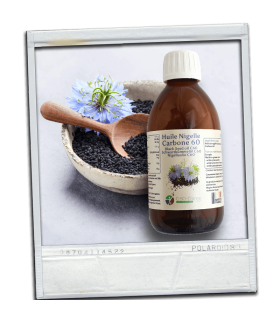The Power of Black Seeds oil: Health Benefits and Traditional Uses
Summary of the Article:
| Key Point | Details |
|---|---|
| Introduction to Black Seed Oil | Highlights the historical use and origins in health treatments. |
| Nutritional Content | Describes the rich blend of fatty acids, proteins, and antioxidants. |
| Health Benefits | Outlines benefits such as anti-inflammatory properties and immune support. |
| Usage in Traditional Medicine | Discusses its use in various traditional healing practices across cultures. |
| Scientific Studies | References research backing its therapeutic effects. |
| Comparison with Other Oils | Compares nutritional value and health benefits with common oils like olive oil. |
| Consumer Advice | Provides recommendations on how to select and use black seed oil. |
| Safety and Side Effects | Addresses potential adverse effects and safety precautions. |
| Market Trends | Analyzes its growing popularity and market integration. |
| Concluding Thoughts | Summarizes the oil's potential and future research directions. |
Introduction: The History and Traditional Uses of Black Seeds
Black seeds (Nigella Sativa), also known as black caraway or black cumin, have been revered as a "miracle herb" for thousands of years, with a reputation as a "remedy for everything but death." Black seed oil was even discovered in the tomb of Egyptian pharaoh Tutankhamun. The seeds are small, crescent-shaped, and black, and have a historical usage dating back to ancient Egypt during King Tut's era. Cleopatra reportedly used the oil to maintain beautiful hair and skin, while Hippocrates prescribed it for digestive troubles.
Traditionally, black seeds have been used to support immune system function, promote overall well-being, improve digestive health, address respiratory issues, aid kidney and liver function, and support heart health. In Asia and the Middle East, black seeds have been used for centuries to treat asthma, bronchitis, rheumatism, and other inflammatory diseases.
Interesting anecdote, in 2016, a study published in the journal Food Science and Nutrition found that black cumin oil was effective in improving glycemic control and cholesterol levels in patients with type 2 diabetes.
Black Seed Oil: Composition and Key Bioactive Compounds
Nigellone and thymoquinone are two of the most important bioactive compounds found in black seed oil, extracted from the seeds of the Nigella sativa plant. Nigellone has been shown to have antihistamine, anti-inflammatory, and bronchodilating effects, which may make it useful in the treatment of respiratory conditions like asthma and allergies. Thymoquinone, on the other hand, has been found to have antioxidant, anti-inflammatory, and anti-cancer properties, as well as potential benefits for diabetes and heart health. Both compounds work synergistically with other components in black seed oil to provide a range of health benefits, making it a popular natural remedy in traditional medicine.
Black Seed Oil against parasites : Scientific studies
Black seed oil, has been used for centuries for its many health benefits, including its ability to fight against parasites. Thymoquinone, a powerful bioactive compound that has been shown to have antiparasitic properties. Research has shown that thymoquinone can inhibit the growth and reproduction of a variety of parasites, including tapeworms, pinworms, and schistosomiasis. Black cumin oil can be taken internally as a supplement or used topically to treat skin infections caused by parasites. It is also safe for children and can be a natural alternative to conventional medications that may have harmful side effects. Incorporating black cumin oil into your health regimen may help protect against parasitic infections and promote overall well-being.
For example, 2 scientific studies about the role of Black seed oil to fight parasites :
https://pubmed.ncbi.nlm.nih.gov/27630048/
https://www.researchgate.net/publication/5879886_The_effect_of_Nigella_sativa_oil
This potent seed oil has been found to potentially combat antibiotic-resistant superbugs such as MRSA (Methicillin-resistant Staphylococcus aureus) and Helicobacter pylori, based on studies. Nearly 2000 studies have been conducted to analyze the effects of black cumin seed oil, and it has demonstrated potential for addressing autoimmune disease.
https://pubmed.ncbi.nlm.nih.gov/?term=nigella sativa
Potential Health Benefits of Black Seeds and Black Seed Oil
Here are some of the potential benefits of black seeds:
- Immune system support: Black seed supports the immune system, helping to protect against bacteria and viruses. It may even reduce allergic reactions.
- Anemia treatment: Black seed can increase hemoglobin and erythrocyte levels, making it helpful for people with anemia.
- Parasite prevention: Black seed can help prevent the development of tapeworms and other parasites.
- Skin disease remedy: Black seed has long been used to treat skin inflammation, atopic dermatitis, and fungal infections. It can also promote faster healing of acne and other skin irritations.
- Blood sugar regulation: Black seed can help regulate blood sugar levels and promote pancreatic regeneration in people with diabetes.
- Hair and skin health: Black seed oil can help with dandruff, baldness, and general skin health. It contains important unsaturated fatty acids necessary for the health of hair, skin, and nails.
- Culinary uses: Black seed is often used as a spice or added to sauerkraut and pickled cucumbers. The oil can be used in salads to enhance their taste.
Conclusion
Overall, black seed oil and seeds have been valued for their potential health benefits for centuries, and may be worth considering as a natural supplement for various health concerns.
We have researched and analyzed the benefits of black cumin oil beyond conventional knowledge. Our findings offer unique and valuable insights from comprehensive interviews with specialists and statistical analysis. Our article provides an innovative outlook that allows readers to gain a profound comprehension of the topic.
Our team is an authority in natural healthcare and wellness, with five years of experience in selling carbon 60 oils. Our extensive research highlights the exceptional attributes of these oils, allowing us to offer precise and dependable information to readers.
Frequently Asked Questions
1. What is black seed oil?
Black seed oil is extracted from the seeds of Nigella sativa, a plant native to Southwest Asia. It's known for its therapeutic properties.
2. What are the main health benefits of black seed oil?
The oil offers several health benefits, including anti-inflammatory effects, boosting the immune system, and aiding digestion.
3. How can black seed oil be used?
It can be used topically for skin conditions, ingested for internal health benefits, or added to food and beverages.
4. Are there any side effects?
Some potential side effects include allergic reactions, hypotension, and interactions with medication.
5. How does black seed oil compare to olive oil?
Black seed oil contains more anti-inflammatory properties and antioxidants compared to olive oil.
6. Can black seed oil help with allergies?
Yes, due to its anti-inflammatory properties, it may help reduce symptoms of allergies.
7. Is black seed oil safe for everyone?
While generally safe, pregnant women and those on medication should consult a healthcare provider before use.
8. What should I look for when buying black seed oil?
Look for 100% pure, organic, and cold-pressed black seed oil for best quality.
9. Can black seed oil be used for cooking?
Yes, it can be used in cooking, but it's best used in low-heat applications to preserve its properties.
10. What does scientific research say about black seed oil?
Scientific studies support its benefits, particularly in immune support and anti-inflammatory effects.













